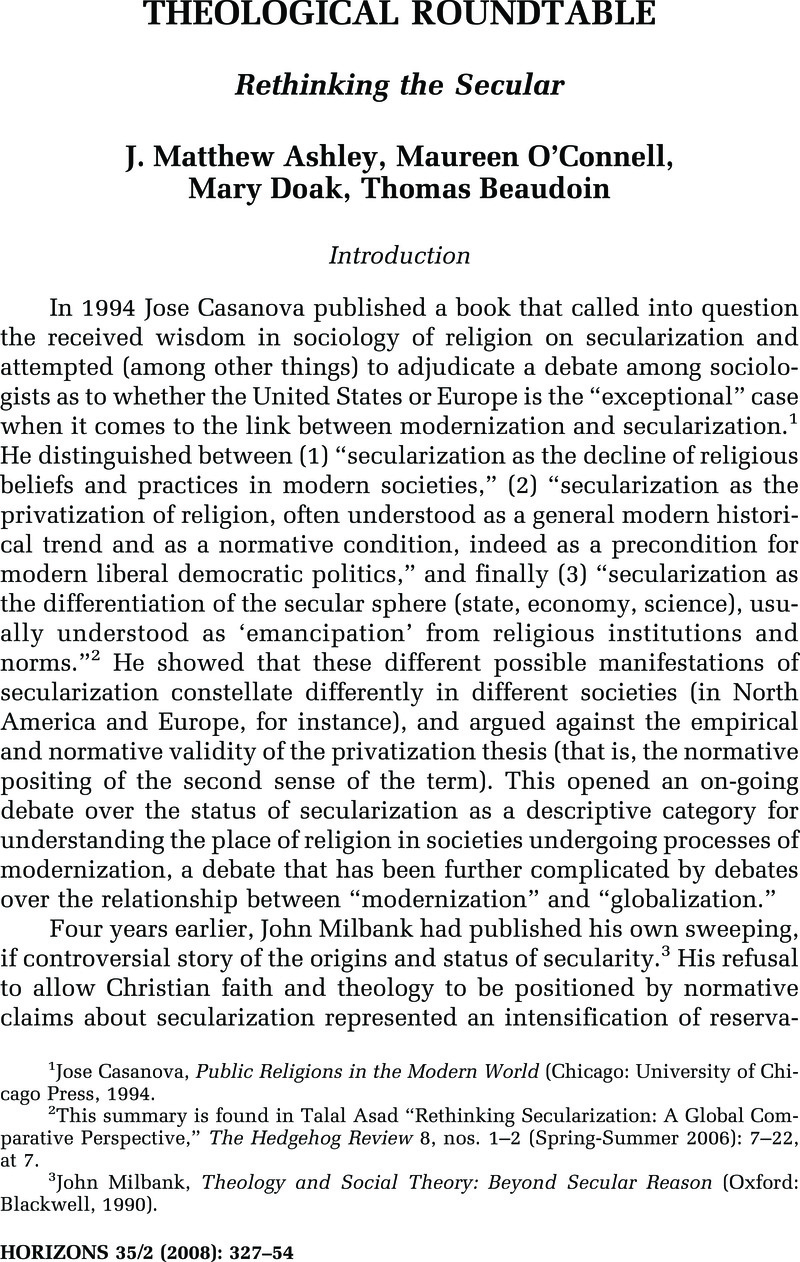No CrossRef data available.
Article contents
Rethinking the Secular - I. “Saving the Secular: Mark Lilla's The Stillborn God
Published online by Cambridge University Press: 18 March 2013
Abstract

- Type
- Theological Roundtable
- Information
- Copyright
- Copyright © The College Theology Society 2008
References
5 Lilla, Mark, The Stillborn God: Religion, Politics, and the Modern West (New York: Knopf, 2007)Google Scholar; henceforth SG.
6 SG 248. What Lilla does not do, however, is point out that this line comes from a more recent generation of political theologians in the United States, indicating therby how selective his story is.
7 SG 278. There is a Jewish subplot in Lilla's story, in which Hermann Cohen and Franz Rosenzweig play the parts of Ritschl and Barth. This story has its own puzzles, but I do not follow them here.
8 To be fair, he warns readers in advance that he will not consider the history of the Catholic Church's engagement with “the Great Separation.” It is enough for the story he wants to tell simply to note the Catholic hierarchy's resolute opposition to it (SG 12n.). Yet given his favorable opinion particularly of the English strand of political philosophy, his exclusion of O'Donovan is puzzling, to say the least, particularly insofar as he continues a position that is at root Barthian and which, therefore, demands treatment.
9 On Taylor, see the essay by Maureen O'Connell, below.
10 The reference to the disciplining of argument (leaving open the question of how Lilla's “simple believers” are to be disciplined) is also certainly vulnerable to a critique along the lines of Talal Asad's. On this, see Tom Beaudoin's essay below.
11 For a relevant collection by Gutiérrez, Gustavo, see The Density of the Present: Selected Writings (Maryknoll, NY: Orbis, 1999)Google Scholar, especially the following essays: “New things Today: A Rereading of Rerum Novarum” (39–58), “Toward the Fifth Centenary” (102–12) and “Friends of God, Friends of the Poor” (147–56). For Metz's assertion of the importance of attention to the victims for understanding the relationship of Politics and religious faith, see his essay, “Monotheism and Democracy: Religion and Politics on Modernity's Ground,” in Metz, J.B.A Passion for God: The Mystical-Political Dimension of Christianity, trans., ed., intro. by Ashley, J. Matthew (New York: Paulist, 1998), 136–49Google Scholar; and, more recently, Metz, J.B., Mysterium Passionis: ein provozierendes Gedächtnis in pluralistischer Gesellschaft (Freiburg: Herder, 2006)Google Scholar, passim.




